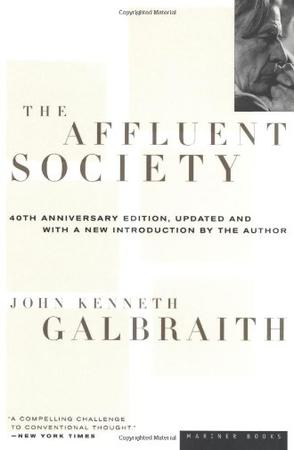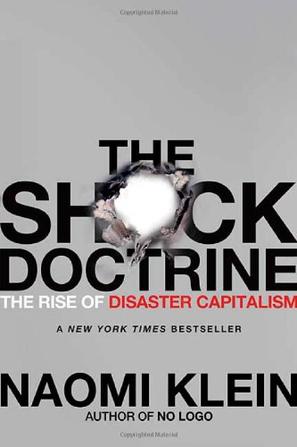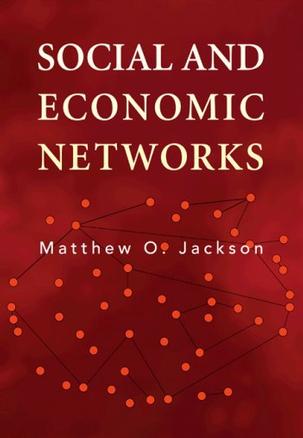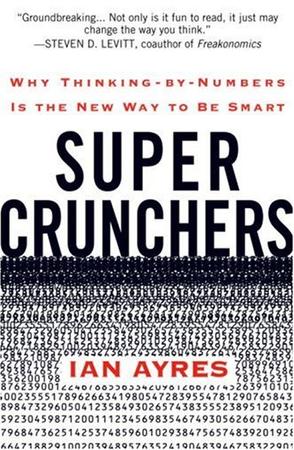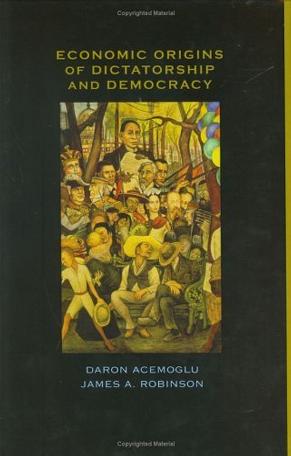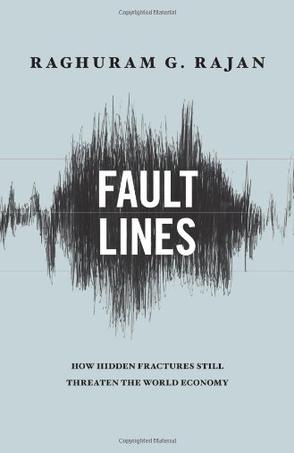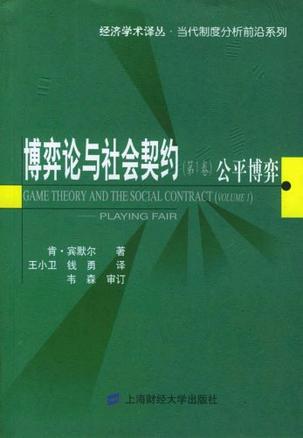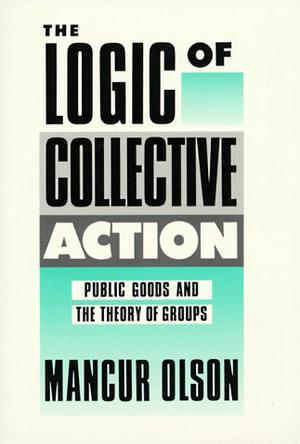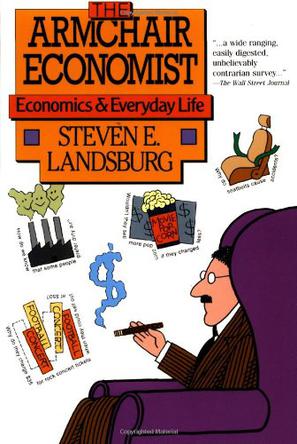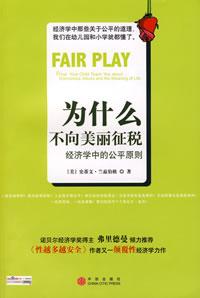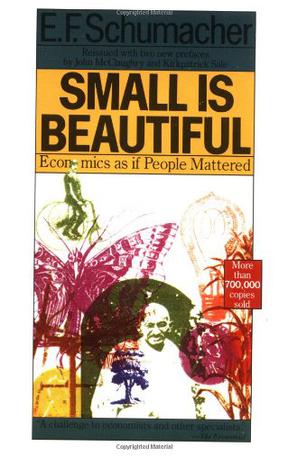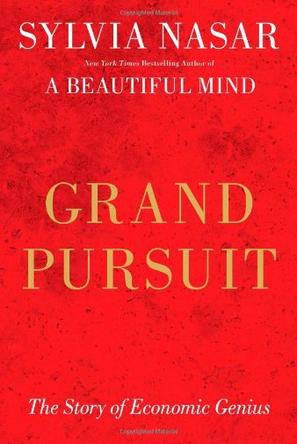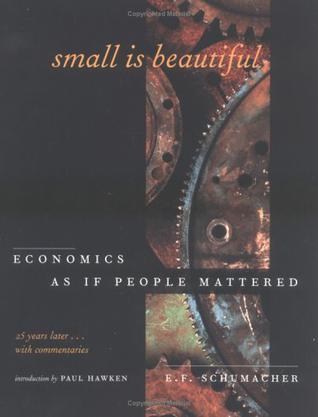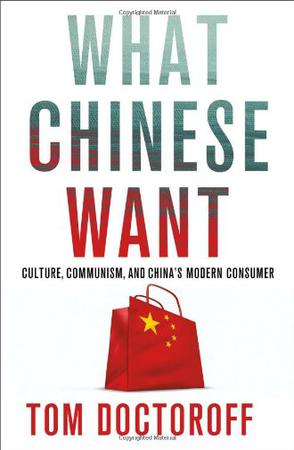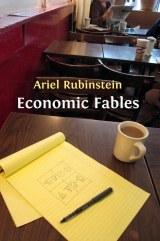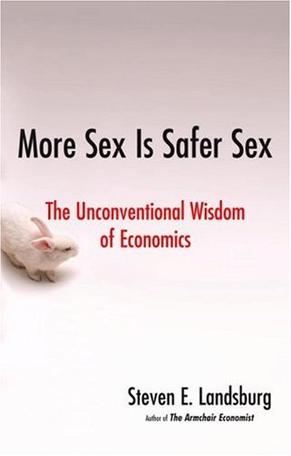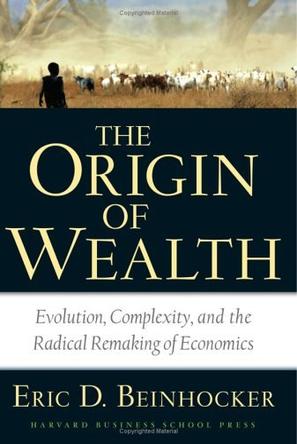欢迎来到相识电子书!
标签:economics
-
The Affluent Society
Galbraith's classic on the "economics of abundance" is, in the words of the New York Times, "a compelling challenge to conventional thought." With customary clarity, eloquence, and humor, Galbraith cuts to the heart of what economic security means (and doesn't mean) in today's world and lays bare the hazards of individual and societal complacence about economic inequity. While "affluent society" and "conventional wisdom" (first used in this book) have entered the vernacular, the message of the book has not been so widely embraced--reason enough to rediscover The Affluent Society. -
The Shock Doctrine
The bestselling author of No Logo shows how the global free market has exploited crises and shock for three decades, from Chile to Iraq In her groundbreaking reporting over the past few years, Naomi Klein introduced the term disaster capitalism. Whether covering Baghdad after the U.S. occupation, Sri Lanka in the wake of the tsunami, or New Orleans post-Katrina, she witnessed something remarkably similar. People still reeling from catastrophe were being hit again, this time with economic shock treatment, losing their land and homes to rapid-fire corporate makeovers. The Shock Doctrine retells the story of the most dominant ideology of our time, Milton Friedman s free market economic revolution. In contrast to the popular myth of this movement s peaceful global victory, Klein shows how it has exploited moments of shock and extreme violence in order to implement its economic policies in so many parts of the world from Latin America and Eastern Europe to South Africa, Russia, and Iraq. At the core of disaster capitalism is the use of cataclysmic events to advance radical privatization combined with the privatization of the disaster response itself. Klein argues that by capitalizing on crises, created by nature or war, the disaster capitalism complex now exists as a booming new economy, and is the violent culmination of a radical economic project that has been incubating for fifty years. From Publishers Weekly The neo-liberal economic policies—privatization, free trade, slashed social spending—that the Chicago School and the economist Milton Friedman have foisted on the world are catastrophic in two senses, argues this vigorous polemic. Because their results are disastrous—depressions, mass poverty, private corporations looting public wealth, by the author's accounting—their means must be cataclysmic, dependent on political upheavals and natural disasters as coercive pretexts for free-market reforms the public would normally reject. Journalist Klein (No Logo) chronicles decades of such disasters, including the Chicago School makeovers launched by South American coups; the corrupt sale of Russia's state economy to oligarchs following the collapse of the Soviet Union; the privatization of New Orleans's public schools after Katrina; and the seizure of wrecked fishing villages by resort developers after the Asian tsunami. Klein's economic and political analyses are not always meticulous. Likening free-market shock therapies to electroshock torture, she conflates every misdeed of right-wing dictatorships with their economic programs and paints a too simplistic picture of the Iraq conflict as a struggle over American-imposed neo-liberalism. Still, much of her critique hits home, as she demonstrates how free-market ideologues welcome, and provoke, the collapse of other people's economies. The result is a powerful populist indictment of economic orthodoxy. -
Social and Economic Networks
Review Lucid and comprehensive, Jackson's book elegantly synthesizes several important strands of network science from sociology, physics, mathematics, computer science, and economics. It will be an immensely useful reference for researchers and students alike. (Duncan Watts, Columbia University ) Product Description Networks of relationships help determine the careers that people choose, the jobs they obtain, the products they buy, and how they vote. The many aspects of our lives that are governed by social networks make it critical to understand how they impact behavior, which network structures are likely to emerge in a society, and why we organize ourselves as we do. In Social and Economic Networks, Matthew Jackson offers a comprehensive introduction to social and economic networks, drawing on the latest findings in economics, sociology, computer science, physics, and mathematics. He provides empirical background on networks and the regularities that they exhibit, and discusses random graph-based models and strategic models of network formation. He helps readers to understand behavior in networked societies, with a detailed analysis of learning and diffusion in networks, decision making by individuals who are influenced by their social neighbors, game theory and markets on networks, and a host of related subjects. Jackson also describes the varied statistical and modeling techniques used to analyze social networks. Each chapter includes exercises to aid students in their analysis of how networks function. This book is an indispensable resource for students and researchers in economics, mathematics, physics, sociology, and business. -
Super Crunchers
Why would a casino try and stop you from losing? How can a mathematical formula find your future spouse? Would you know if a statistical analysis blackballed you from a job you wanted? Today, number crunching affects your life in ways you might never imagine. In this lively and groundbreaking new book, economist Ian Ayres shows how today's best and brightest organizations are analyzing massive databases at lightening speed to provide greater insights into human behavior. They are the Super Crunchers. From internet sites like Google and Amazon that know your tastes better than you do, to a physician's diagnosis and your child's education, to boardrooms and government agencies, this new breed of decision makers are calling the shots. And they are delivering staggeringly accurate results. How can a football coach evaluate a player without ever seeing him play? Want to know whether the price of an airline ticket will go up or down before you buy? How can a formula outpredict wine experts in determining the best vintages? Super crunchers have the answers. In this brave new world of equation versus expertise, Ayres shows us the benefits and risks, who loses and who wins, and how super crunching can be used to help, not manipulate us. Gone are the days of solely relying on intuition to make decisions. No businessperson, consumer, or student who wants to stay ahead of the curve should make another keystroke without reading Super Crunchers. -
Economic Origins of Dictatorship and Democracy
What forces lead to democracy's creation? Why does it sometimes consolidate only to collapse at other times? Written by two of the foremost authorities on this subject in the world, this volume develops a framework for analyzing the creation and consolidation of democracy. It revolutionizes scholarship on the factors underlying government and popular movements toward democracy or dictatorship. Daron Acemoglu and James Robinson argue that different social groups prefer different political institutions because of the way they allocate political power and resources. Their book, the subject of a four-day seminar at Harvard's Center for Basic Research in the Social Sciences, was also the basis for the Walras-Bowley lecture at the joint meetings of the European Economic Association and Econometric Society in 2003 and is the winner of the John Bates Clark Medal. -
博弈论与社会契约(第1卷)
“无论是对主题的概括,还是透彻而全面的讨论,《博弈论与社会契约》一书都 超 越了日前这 一领域的所有文献。它对博弈的论在政治哲学中的应用作了一个 精彩的展示,与作者的《快乐与博弈》一书可谓是珠联壁合。” 在本书中,肯.宾默尔认为博弈论为探索伦理问题提供了一种系统的工具。通过在博弈论框架中对古典的社会契约思想的重新解释,他得出了对社会哲学基本问题的新的洞识。他首先通过对基本问题的讨论,特别是对近年来把博弈论引入到社会哲学中所产生的种种问题的讨论,为他的这一雄心勃勃的努力扫清了道路。 肯.宾默尔阐明了如何从哈萨尼和罗尔斯的经典的论述中形成一个与现代非合作博弈理论相一致的综合理论。在这个过程中,他发现了其他由卢梭、康德、高塞尔和诺齐克等人提出的分析社会合作和协调的方法的逻辑缺陷,令人信服地指出目前大量的文献都存在对不相关博弈的错误分析。 本书使得博弈论思想对于那些对此知之甚少的人也易于理解和接受。本书的内容是用了大量简单的例子来讲述的,数学的使用被减少到了最小程度。 肯.宾默尔教授是伦敦大学院经济学教授。在此之前他的著作还有《作为博弈的经济组织》、《讨价还价经济学》、《博弈论基础论文集》、《快乐与博弈》,以及一本关于博弈论的研究生教材。 -
The Logic of Collective Action
This book develops an original theory of group and organizational behavior that cuts across disciplinary lines and illustrates the theory with empirical and historical studies of particular organizations. Applying economic analysis to the subjects of the political scientist, sociologist, and economist, Mr. Olson examines the extent to which the individuals that share a common interest find it in their individual interest to bear the costs of the organizational effort. The theory shows that most organizations produce what the economist calls "public goods"--goods or services that are available to every member, whether or not he has borne any of the costs of providing them. Economists have long understood that defense, law and order were public goods that could not be marketed to individuals, and that taxation was necessary. They have not, however, taken account of the fact that private as well as governmental organizations produce public goods. -
Armchair Economist
在线阅读本书 Witty economists are about as easy to find as anorexic mezzo-sopranos, natty mujahedeen, and cheerful Philadelphians. But Steven E. Landsburg...is one economist who fits the bill. In a wide-ranging, easily digested, unbelievably contrarian survey of everything from why popcorn at movie houses costs so much to why recycling may actually reduce the number of trees on the planet, the University of Rochester professor valiantly turns the discussion of vexing economic questions into an activity that ordinary people might enjoy. -- Joe Queenan, The Wall Street Journal The Armchair Economist is a wonderful little book, written by someone for whom English is a first (and beloved) language, and it contains not a single graph or equation...Landsburg presents fascinating concepts in a form easily accessible to noneconomists. -- Erik M. Jensen, The Cleveland Plain Dealer ...enormous fun from its opening page...Landsburg has done something extraordinary: He has expounded basic economic principles with wit and verve. -- Dan Seligman, Fortune -
为什么不向美丽征税
孩子们看见别人得到的蛋糕更大,就会大哭大闹,而成年人遭遇不公平现象时,为什么就没有这么敏锐和果敢呢? 想想看,如果你会让孩子把多余的玩具送给没有玩具的孩子,而不是那些玩具较少的孩子,那么你为什么会把福利金送给不那么富有的美国人,而不是一无所有的非洲难民呢? 如果你会让孩子和同学之间自由地交换小花纸,而不是让老师去惩罚那些不愿意交换的孩子,那么你为什么就同意封锁某些国际贸易的渠道,强迫美国消费者只能买美国制造呢? 本书与其说是一位父亲给女儿上的经济学启蒙课,不如说是未经世事的女儿和身为著名经济学家的父亲进行的一场关于“怎样才算公平”的对话。原来,累进制赋税、区域保护主义、政府债务计算、国际贸易获利率,这一切都不是什么玄妙的问题.用你曾经教导孩子的话问问自己,那么经济学就会由“魔鬼”变成“游戏”。 -
Small Is Beautiful
The classic of common-sense economics. "Enormously broad in scope, pithily weaving together threads from Galbraith and Gandhi, capitalism and Buddhism, science and psychology."-- The New Republic -
Grand Pursuit
In a sweeping narrative, the author of the megabestseller A Beautiful Mind takes us on a journey through modern history with the men and women who changed the lives of every single person on the planet. It’s the epic story of the making of modern economics, and of how economics rescued mankind from squalor and deprivation by placing its material fate in its own hands rather than in Fate. Nasar’s account begins with Charles Dickens and Henry Mayhew observing and publishing the condition of the poor majority in mid-nineteenth-century London, the richest and most glittering place in the world. This was a new pursuit. She describes the often heroic efforts of Marx, Engels, Alfred Marshall, Beatrice and Sydney Webb, and the American Irving Fisher to put those insights into action—with revolutionary consequences for the world. From the great John Maynard Keynes to Schumpeter, Hayek, Keynes’s disciple Joan Robinson, the influential American economists Paul Samuelson and Milton Freedman, and India’s Nobel Prize winner Amartya Sen, she shows how the insights of these activist thinkers transformed the world—from one city, London, to the developed nations in Europe and America, and now to the entire planet. In Nasar’s dramatic narrative of these discoverers we witness men and women responding to personal crises, world wars, revolutions, economic upheavals, and each other’s ideas to turn back Malthus and transform the dismal science into a triumph over mankind’s hitherto age-old destiny of misery and early death. This idea, unimaginable less than 200 years ago, is a story of trial and error, but ultimately transcendent, as it is rendered here in a stunning and moving narrative. -
货币简史
大黄蜂采集的花粉,用来交租的那一捧麦子,为地主耕地,与朋友轮流请客吃饭喝酒,婶婶为你做的那顿家乡美食,生日时收到的琳琅礼物…… 这些你从来没有认真想过的事情,其实都是货币。货币的形式和存在超越时空、包罗万象,而它对人类的影响更是超乎想象。但很少有人想起,货币究竟是如何在我们的生活中扮演了如此重要的地位的,这一切又是为何。 在《货币简史》中,卡比尔·塞加尔抛开了人们对货币的一般理解,引领读者进行了环球探索,从历史、经济、文化、宗教、政治、艺术、生物、神经学乃至未来学的全景视角探讨了“货币”这一极为复杂的话题。每一页都有足以让读者惊奇的有关世界经济发展的历史、事实和故事。 而更为重要的是,《货币简史》以极为新奇有趣的方式去探讨人性的本质和人们内在的思想活动,重新定义了货币给我们的社会、国家和全人类带来的真正价值、意义、影响与力量。 对任何希望了解货币如何影响这个世界的人,甚至对于任何一个有存款或者信用卡的人来说,这本书不应错过。 -
What Chinese Want
Today China is a critical player in the global marketplace, but there is still widespread confusion about what really makes the country tick - even the Chinese have difficulty explaining their own "Chineseness" to outsiders. In What Chinese Want, China expert Tom Doctoroff posits that China’s distinguishing traits explain the country in profound ways, including: *Connection to History: For thousands of years, the impulses and conflicts within Chinese civilization have driven its people’s behavior and choices. More than any other nationality, they are driven by their past history as much as by their intense focus on the future. This manifests itself in a profound belief in their country's stability and an intense national pride that often drives business decisions. *A Complex View of Morality: As evidenced by their sticky human rights issues, rampant piracy, and endemic government corruption, the Chinese have a significantly higher tolerance for certain things the West would consider wrong. Doctoroff puts these differences in context so that the reader can understand their nuances and impact on business and international relations. *Family Over the Individual: Whereas in America the individual is a prized source of originality, freewill, and consumer choice, in China the focus is squarely on the family and the larger society. This difference can be seen in the educational system, entrepreneurial activity, and many other key aspects of Chinese society.From the new generation’s embrace of Christmas to the secrecy of industry titans; from the government’s meticulously incremental approach to currency appreciation to the middle class’s fixation with luxury brands, Doctoroff explains the mysteries of modern China for those looking to enter the market in a culturally sensitive and effective way. -
Economic Fables
"I had the good fortune to grow up in a wonderful area of Jerusalem, surrounded by a diverse range of people: Rabbi Meizel, the communist Sala Marcel, my widowed Aunt Hannah, and the intellectual Yaacovson. As far as I'm concerned, the opinion of such people is just as authoritative for making social and economic decisions as the opinion of an expert using a model." Part memoir, part crash-course in economic theory, this deeply engaging book by one of the world's foremost economists looks at economic ideas through a personal lens. Together with an introduction to some of the central concepts in modern economic thought, Ariel Rubinstein offers some powerful and entertaining reflections on his childhood, family and career. In doing so, he challenges many of the central tenets of game theory, and sheds light on the role economics can play in society at large. Economic Fables is as thought-provoking for seasoned economists as it is enlightening for newcomers to the field. -
More Sex Is Safer Sex
Steven Landsburg's writings are living proof that economics need not be "the dismal science." Readers of The Armchair Economist and his columns in Slate magazine know that he can make economics not only fun but fascinating, as he searches for the reasons behind the odd facts we face in our daily lives. In More Sex Is Safer Sex, he brings his witty and razor-sharp analysis to the many ways that our individually rational decisions can combine into some truly weird collective results -- and he proposes hilarious and serious ways to fix just about everything. When you stand up at the ballpark in order to see better, you make a rational decision. When everyone else does it too, the results, of course, are lousy. But this is just the tip of the iceberg of individual sanity and collective madness. Did you know that some people may actually increase the spread of sexually transmitted diseases when they avoid casual sex? Do you know why tall people earn more money than shorter competitors? (Hint: it isn't just unfair, unconscious prejudice.) Do you know why it makes no sense for you to give charitable donations to more than one organization? Landsburg's solutions to the many ways that modern life is unfair or inefficient are both jaw-dropping and maddeningly defensible. We should encourage people to cut in line at water fountains on hot days. We should let firefighters keep any property they rescue from burning houses. We should encourage more people to act like Scrooge, because misers are just as generous as philanthropists. Best of all are Landsburg's commonsense solutions to the political problems that plague our democracy. We should charge penalties to jurors if they convict a felon who is later exonerated. We should let everyone vote in two congressional districts: their own, and any other one of their choice. While we're at it, we should redraw the districts according to the alphabetical lists of all voters, rather than by geography. We should pay FDA commissioners with shares of pharmaceutical company stocks, and pay our president with a diversified portfolio of real estate from across the country. Why do parents of sons stay married more often than parents who have only daughters? Why does early motherhood not only correlate with lower income, but actually cause it? Why do we execute murderers but not the authors of vicious computer viruses? The lesson of this fascinating, fun, and endlessly provocative book is twofold: many apparently very odd behaviors have logical explanations, and many apparently logical behaviors make no sense whatsoever. -
The Origin of Wealth
In the Origin of Wealth, Eric Beinhocker offers a thorough and convincing new way to think about economic growth and business management. The author begins by exploring the roots of modern economic theory and ultimately declares it outmoded and wrong. Instead, he suggests, markets and growth can best be explained by drawing on the emerging field of complexity economics: the study of markets and social systems as complex adaptive systems. Although biological metaphors in business have become familiar (i.e., organizations are living organisms), Beinhocker moves beyond metaphor to explain the revolutions in science that will inevitably change the way we think about economics, competition, and business. The Origin of Wealth raises important questions such as: How can one create strategy in uncertain and fast moving environments? Why is it hard for large organizations to be innovative and how should we organize for better results? What role should governments play in this new era? -
The Road to Serfdom
The Road to Serfdom remains one of the all-time classics of twentieth-century intellectual thought. For over half a century, it has inspired politicians and thinkers around the world, and has had a crucial impact on our political and cultural history. With trademark brilliance, Hayek argues convincingly that, while socialist ideals may be tempting, they cannot be accomplished except by means that few would approve of. Addressing economics, fascism, history, socialism and the Holocaust, Hayek unwraps the trappings of socialist ideology. He reveals to the world that little can result from such ideas except oppression and tyranny. Today, more than fifty years on, Hayek's warnings are just as valid as when The Road to Serfdom was first published.
热门标签
下载排行榜
- 1 梦的解析:最佳译本
- 2 李鸿章全传
- 3 淡定的智慧
- 4 心理操控术
- 5 哈佛口才课
- 6 俗世奇人
- 7 日瓦戈医生
- 8 笑死你的逻辑学
- 9 历史老师没教过的历史
- 10 1分钟和陌生人成为朋友

